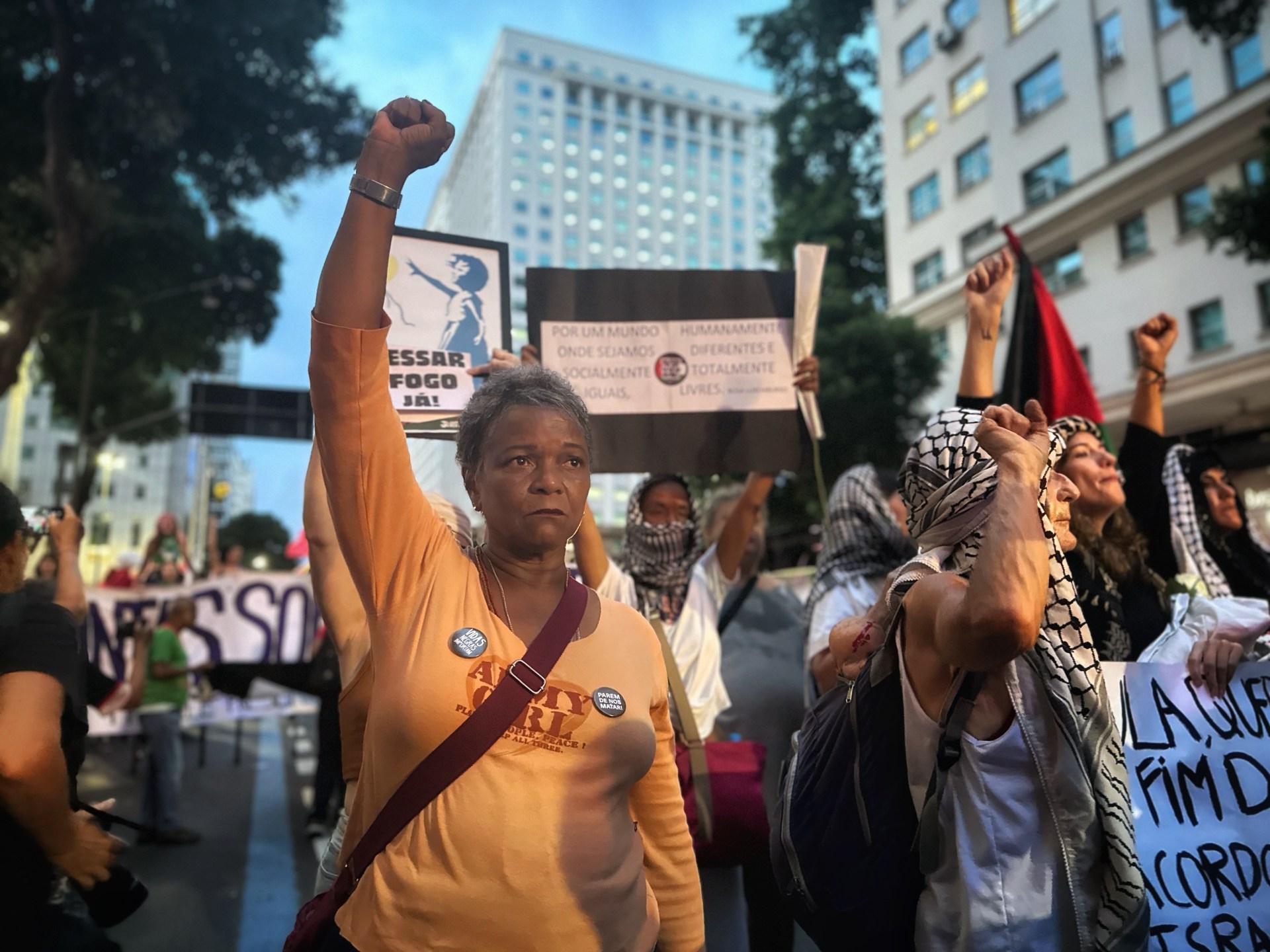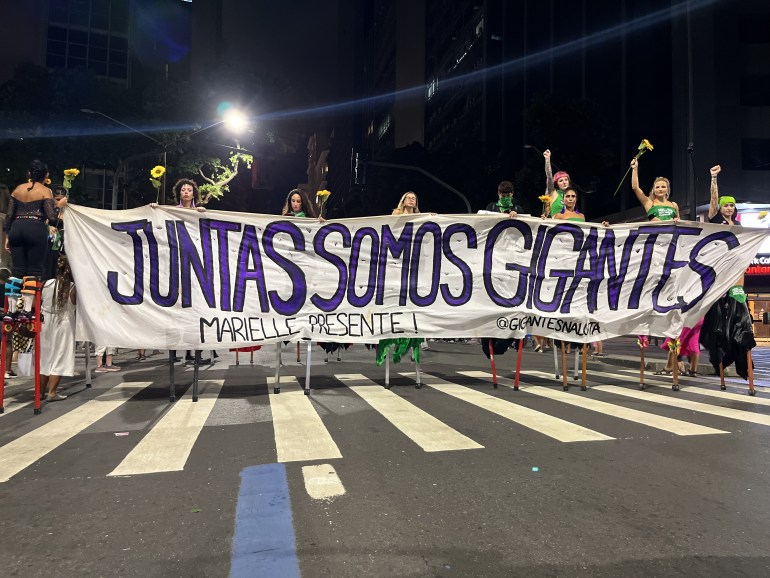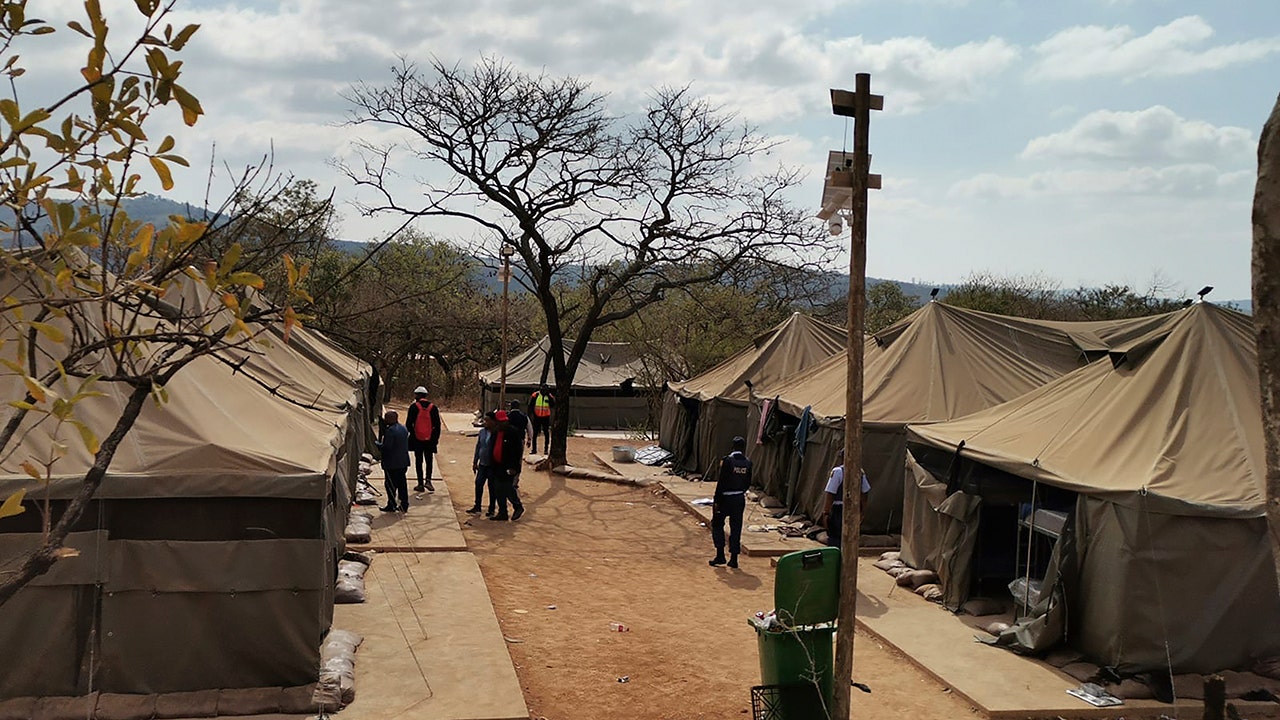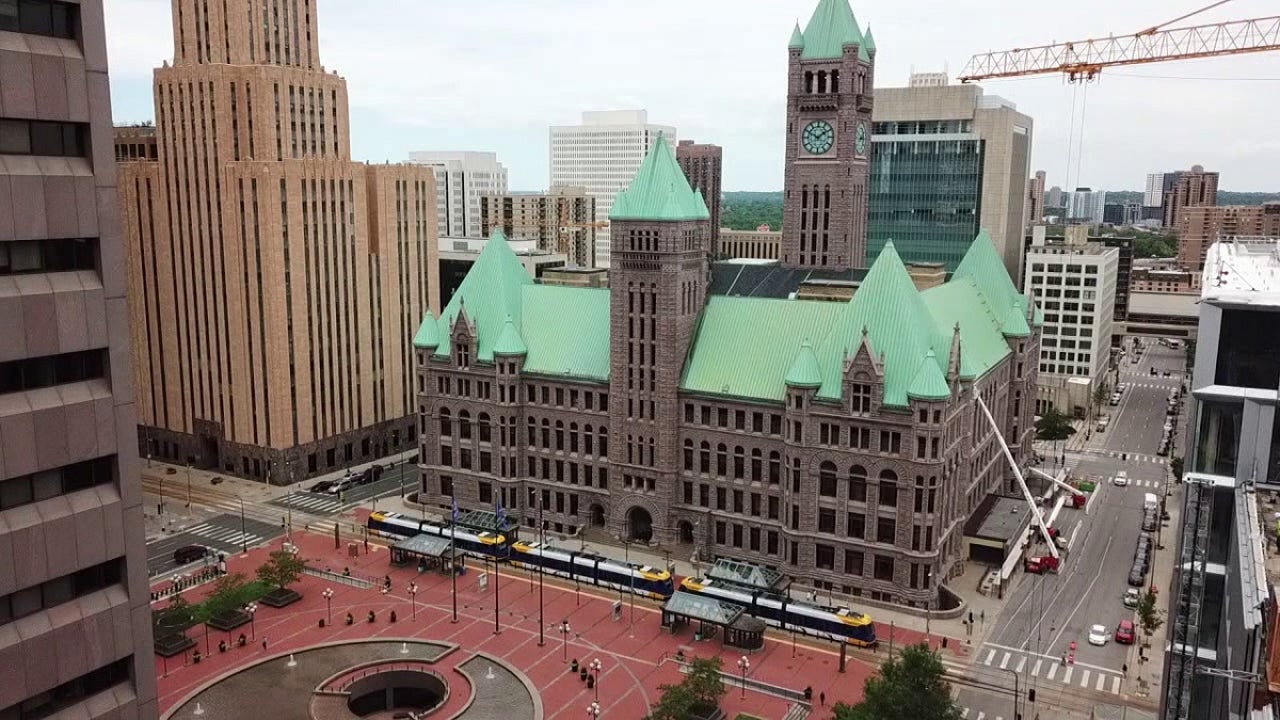World
In Brazil, an abortion debate pits feminists against the church

Rio de Janeiro, Brazil – In 2019, Mariana Leal de Souza, a 39-year-old Black woman living outside Brazil’s largest city, Sao Paulo, was having a hard time coping with the suicide of her teenage son when she was confronted with more difficult news: She was pregnant.
“I couldn’t believe it,” the social worker told Al Jazeera during a recent video call. “Mentally and financially, I wasn’t ready for another pregnancy after the loss of my son.”
She decided to terminate, but there was a problem: Brazil’s Penal Code permits abortion only if the pregnancy is the result of rape, puts the mother’s health at risk or doctors diagnose severe malformations to the fetus. None of these applied to Leal de Souza.
So she enlisted the help of three close friends, one of whom had connections to an underground supplier of Cytotec, a medication originally intended for ulcers but repurposed by low-income women in Latin America as a means to terminate unwanted pregnancies. Pooling their resources, they came up with $150 to buy the medication.
But the experience was agonizing. As Leal de Souza recalled: “It felt as though my body was expelling everything. I experienced chills, intense abdominal pain and bleeding.” She assumed these were standard complications and tried to tough it out, but the ensuing weeks brought her no respite.
“The bleeding wouldn’t stop, yet I couldn’t seek hospital care for fear of legal repercussions,” she said.
Two months later, with her abdomen swelling, Leal de Souza began to fear for her life. She decided to seek assistance at a nearby public hospital where she endured prolonged wait times and a barrage of inquiries before medical staff finally examined her.
Doctors made a startling discovery: A fetus remained inside Leal de Souza’s womb. She had been carrying twins, and only one fetus had been expelled.
The hospital concluded that this was the result of a miscarriage, sparing de Souza from criminal charges.
“I felt a sense of relief, yet simmering resentment lingered, knowing that if I were … white or [a] woman of means, I could have accessed safe clinical care without endangering my life,” she said.
‘All women get abortions but … only the poor go to jail’
As many as 4 million abortions are performed annually in Brazil, Latin America’s most populous country. Of those, only 2,000, or 5 percent, are performed legally.
Women who undergo illegal abortions face prison sentences of up to three years if convicted, and the doctors who perform them can spend up to four years in prison. Part of Leal de Souza’s ordeal, she said, was that she was well aware of cases involving poor women who had faced incarceration for terminating their pregnancies.
Her story sheds light on a glaring reality in Brazil, a country that is home to more people of African descent than any other country in the world save Nigeria: Black and marginalized women bear the brunt of legislation that criminalizes abortion.
A study conducted by anthropologist Debora Diniz found Black women are 46 percent more likely than white women to resort to unsafe abortion practices.
A federal legislator representing Rio de Janeiro, Luciana Boiteux, spearheaded a legal initiative in the Supreme Court in 2017 proposing the enshrinement of abortion as a constitutional right.
“The decriminalization of abortion is inherently a racial justice issue,” she told Al Jazeera.
Brazil’s abortion laws have remained largely unchanged since the 1950s. What has changed is the emergence in recent years of an animated feminist movement, inspired, at least in part, by the legalization of abortion in neighbouring Argentina in 2020 and the inauguration a year earlier of President Jair Bolsonaro, whose conservative administration was widely viewed as antagonistic towards Black people and women.
Bolsonaro’s policies sparked a response in the form of campaigns such as Nem Presa Nem Morta (Neither Imprisoned Nor Dead), which fights for the decriminalisation of abortion, and the women-led, anti-Bolsonaro Ele Nao (Not Him). Rallies have also been held, such as a March 8 demonstration in which thousands of protesters took to the streets of Rio de Janeiro to demand racial justice and safe, legal access to abortions.
At the march, one woman carried a placard that read: “All women get abortions, but while the rich ones travel to get one, we the poor go to jail.”
The women’s movement in Brazil is growing, but it has encountered pushback from the evangelical movement in its efforts to improve reproductive health for women.
Evangelicals’ influence on Brazil’s abortion discourse
With the Christ the Redeemer statue standing high over Rio de Janeiro, Brazil is typically associated with the Catholicism of its former colonizer, Portugal. But evangelical Christianity’s influence here began to expand 30 years ago, and today, one in three Brazilians identifies as evangelical. By some estimates, evangelicals will account for a majority of the country’s religious followers by 2032.
The proliferation of evangelicals in Brazil has helped discourage low-income women like Leal de Souza from seeking abortions.
“We’ve witnessed instances where evangelical nurses have exposed women and subsequently reported to authorities,” Boiteux, the federal legislator, told Al Jazeera in an interview in her office in downtown Rio.
Jacqueline Moraes Teixeira, a sociologist and researcher at the University of Brasilia, attributed evangelical growth to social and economic deficits in Brazil, one of the most unequal countries in the world.
“These churches bridge gaps left by the state, offering education, healthcare and sustenance, acting as indispensable [lifelines] for these communities,” she told Al Jazeera.
For Leal de Souza, however, evangelicals have shut down the communication that is the bulwark of democracy.
“We used to have open dialogues within my family and neighbours who are now evangelicals. Nowadays, dissent is met with condemnation. This silence prevented me from sharing my decision to terminate my pregnancy,” she said.

Evangelicals have also flexed their muscles on the political level. Of the 594 members of the National Congress, for example, 228 lawmakers from 15 parties belong to the Evangelical Parliamentary Front – 202 deputies and 26 senators.
“Evangelicals in Congress hold significant leverage and are regarded as an essential ethical bastion for religious activism in politics,” Moraes Teixeira said. “Consequently, their alliances and conservative stance carry significant societal weight.”
However, the final arbiter on lifting abortion restrictions is the Supreme Court.
In a session in September, Chief Justice Rosa Weber voted in favour of a measure to decriminalise abortion up to the 12th week of pregnancy. But the process was halted by another Supreme Court judge, Luis Roberto Barroso, who has since replaced the retired Weber as chief justice.
An investigation by the Brazilian news outlet Agencia Publica found that in the weeks leading up to the court’s deliberations, conservative politicians circulated anti-abortion campaigns on popular social media platforms.
For his part, Barroso said he is in favour of decriminalisation but wants more deliberation. In an interview with Al Jazeera last month, he said: “It’s challenging for the court to act against the sentiment of 80 percent of the population. We must shift public perception.”
“It’s crucial to engage society in dialogue and clarify the real issue: the unjust criminalization disproportionately affecting marginalized women,” he continued. “With greater awareness, I believe attitudes can evolve.”

World
Celine Dion Makes Triumphant Comeback at Paris Olympics Opening Ceremony — Watch Full Performance

ad
World
95 Libyan nationals arrested in South Africa at suspected secret military training camp

South African police arrested 95 Libyan nationals in a raid on a suspected secret military training camp on Friday and authorities said they were investigating whether there were more illegal bases in other parts of the country.
The camp was discovered at a farm in White River in the Mpumalanga province, about 360 kilometers (220 miles) northeast of Johannesburg, police said.
ELEPHANTS KILL TOURIST IN SOUTH AFRICA AFTER HE TRIED TO GET CLOSE TO TAKE PICTURES
National police spokesperson Athlenda Mathe said in a post on the social media site X that the Libyans stated they had entered the country on study visas to train as security guards, but police investigations suggest they have received military training.
The Newzroom Afrika TV news channel broadcast pictures of the site of the arrests, showing a military-style camp with large green and khaki tents set up in a row. Dozens of men were seen lining up as they were arrested. They were wearing civilian clothing.
Local government official Jackie Macie said investigations were ongoing and the owner of the farm would be questioned. He said authorities received information that there were similar secret camps near two other towns in Mpumalanga province.
A camp where 95 Libyan nationals were arrested on suspicion of running an illegal military camp are seen lining up after their arrest on Friday, July 26, 2024 in White River, South Africa. Police say that 95 Libyan nationals were arrested on suspicion of receiving training at a secret military camp in the north of the country. (AP Photo/Bulelwa Maphanga)
The province borders neighboring countries Mozambique and Swaziland and is an area of concern for South African authorities with regards to illegal immigration.
Police and authorities have not said whether the camps are suspected of being connected to a particular group or conflict.
Macie said investigations would establish if there was a network of camps in South Africa and show “why they are here doing military training in our country.”
Police said the men may be linked to crimes reported in communities close to the farm in recent months.
“We have serious cases which have been opened with the police, including cases of rape and armed robberies, which complainants claim were committed by unknown foreigners who seem to be of Asian descent,” said police spokesman Donald Mdhluli.
“We take what we have found here today very seriously because we don’t know who was training them, what were they being trained for and why that training is happening here in South Africa. It may be a threat not only to South Africa but also to the entire southern Africa region.”
Police said the operation to arrest the Libyans and close down the camp began two days ago. Macie said the Libyan nationals had been in the country since at least April.
“The 95 individuals taken into custody are all Libyan nationals and are currently being questioned by the relevant authorities,” Mpumalanga acting provincial police commissioner Maj. Gen. Zeph Mkhwanazi said in a statement.
Mdhluli, the police spokesman, said the country’s security regulator had confirmed that the kind of training that appears to have been taking place at the camp was well beyond the scope of training for security guards.
“The kind of equipment we found here shows that there was intense military training taking place here. This was basically a military base.”
World
Passengers face long, uncertain wait at stations amid rail disruption

A deliberate fire in a signal box about 60 km south of Lille caused the disruption on the northern high-speed line, with traffic halted around 5 a.m. local time on Friday.
Travel was severely disrupted in Lille on Friday, one of the stations affected by the sabotage that hit major French rail lines ahead of the Paris Olympics opening ceremony.
Many passengers waited with hope that soon turned to resignation.
“We’ve been waiting since 10:38 a.m. for the 11:38 a.m. train, and now we’re just waiting for it to arrive at 2:08 p.m.,” said Delphine, one of the stranded passengers.
“It’s still quite a delay, and we’ll be even later since we’re on a secondary route. I work in Avignon at 9 p.m., so it’s going to be very, very tight. We have a concert tonight — will it even happen? This is all very confusing, and we don’t understand what’s going on.”
For one traveller, this was a rough start to the holidays. “The worst case would be if the train is cancelled entirely and we have to buy new tickets for next week. It would shorten our already brief vacation. That would be a huge problem,” said Hippolyte.
When asked if he had been informed of the delays, Hippolyte said he received the notification just before departure.
“At around 10 a.m. this morning, we were told we were an hour late and would be leaving at 1 p.m.”
“It just keeps getting later as the day goes on. Every time we approach the new departure time, it gets pushed back another hour and a half, or half an hour each time.”
A deliberate fire in a signal box about 60 km south of Lille caused the disruption on the northern high-speed line. Traffic was halted around 5 a.m. on Friday.
The recent acts of sabotage on the rail network highlight that the Olympic Games are turning France into a prime target.
The attack disrupted the transport system on the opening day of the Games, causing delays of up to two hours or even cancellations that affected hundreds of thousands of passengers nationwide.
Authorities in Paris have said they are deploying substantial human resources to counter any threats and to ensure the safety of the events.
-

 World1 week ago
World1 week agoOne dead after car crashes into restaurant in Paris
-

 Midwest1 week ago
Midwest1 week agoMichigan rep posts video response to Stephen Colbert's joke about his RNC speech: 'Touché'
-

 News1 week ago
News1 week agoVideo: Young Republicans on Why Their Party Isn’t Reaching Gen Z (And What They Can Do About It)
-

 News1 week ago
News1 week agoIn Milwaukee, Black Voters Struggle to Find a Home With Either Party
-

 Politics1 week ago
Politics1 week agoFox News Politics: The Call is Coming from Inside the House
-

 Movie Reviews1 week ago
Movie Reviews1 week agoMovie Review: A new generation drives into the storm in rousing ‘Twisters’
-

 News1 week ago
News1 week agoVideo: J.D. Vance Accepts Vice-Presidential Nomination
-

 World1 week ago
World1 week agoTrump to take RNC stage for first speech since assassination attempt


















